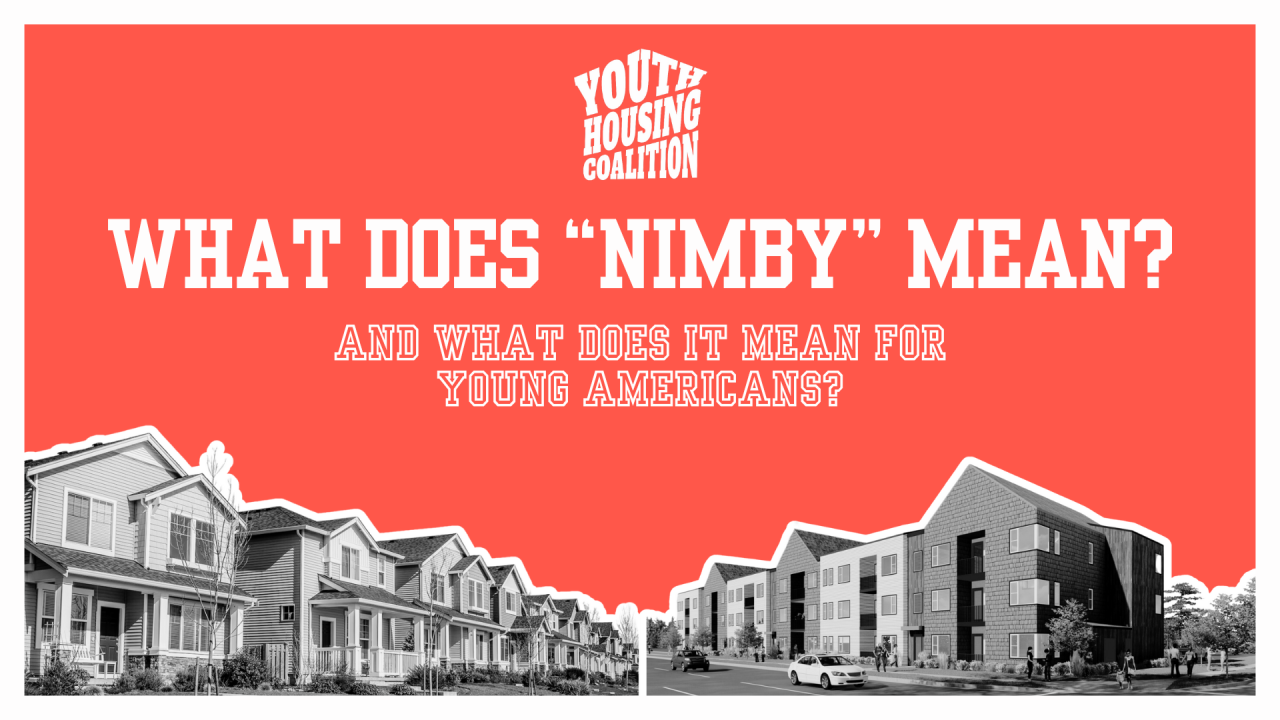
What Does NIMBY Mean?
NIMBY is an acronym that stands for “Not In My Backyard” and is a pejorative phrase to refer to someone that opposes additional development near their home or community.
The earliest identified use of NIMBY was on February 13th, 1979, from the Daily Press of Newport News, Virginia. The article used the phrase, “the “nimby” (not in my backyard) syndrome” to refer to individuals who were raising concerns over the disposal of nuclear waste near their community. However, over the years the phrase, NIMBY, expanded in meaning and now more readily refers to opposition to real estate development, or more specifically, affordable housing.
As the use of NIMBY has risen, the alternative phrase, YIMBY (Yes In My Backyard) became popular as a rallying cry for affordable housing advocates. YIMBYism serves as a catalyst for grassroots activism and policy advocacy. It empowers individuals to engage with local governments, planning agencies, and other stakeholders to effect change in housing policies.
HOW DOES THIS EFFECT YOUNG PEOPLE?

A recent Zillow survey found that there is a direct correlation between NIMBYism and age (Fig. 1). In this study, Zillow surveyed individuals across 29 metro areas to ask about their likelihood of being in support of various types of housing. The study found that Gen Z and Millennial individuals consistently had more positive views of all types of housing development, from accessory dwelling units (ADUs) to large condo/apartment complexes with more than 50 units. For example, 89% of Gen Z survey respondents would be in support of a new medium condo/apartment complex (10-49 units) being developed in their community, whereas only 64% of Boomers & the Silent Generation did.
Not only do Gen Z and Millennial generations tend to trend more toward YIMBY on their perception, but NIMBY attitudes can directly have an adverse effect on affordable rental and future homeownership opportunities for young individuals. As these younger generations strive to secure their place in the housing market, limited housing availability due to NIMBY-driven restrictions contributes to an imbalance between demand and supply. The reluctance to allow new developments or higher-density housing projects in established neighborhoods creates scarcity, driving up property prices and rental costs. This creates a situation where aspiring homeowners from these generations face daunting financial barriers, making it increasingly difficult to enter the housing market or afford their rent.
Moreover, NIMBYism perpetuates generational inequality by preserving the advantages of existing homeowners at the expense of those striving to establish themselves. Homeowners, often representing older generations, benefit from property value appreciation that results from limited housing supply. While their housing assets gain value, Gen Z and Millennials confront a landscape of unaffordability, perpetuating a cycle where the young are locked out of homeownership and wealth accumulation opportunities.